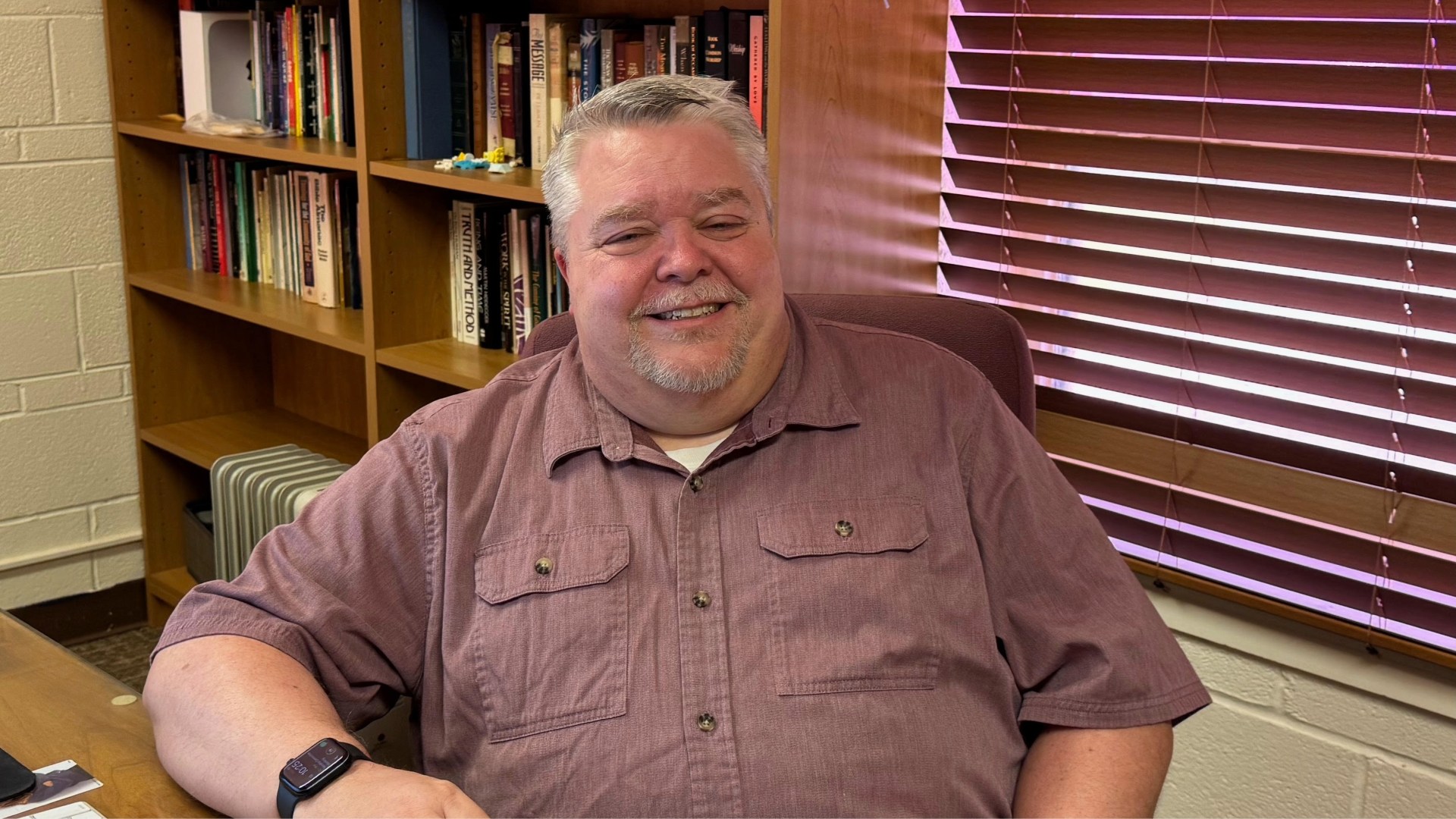In Chris Davis’s world, the word “evangelical” can raise eyebrows. Chris is a PCUSA pastor and an evangelical, two identities that often feel opposed to one another.
The PCUSA is a mainline denomination associated with fairly progressive theology, whereas evangelicalism is conservative theologically. Chris lives and ministers in this often lonely space. Deepening this sense of living in an in-between space, Chris describes his church’s community as politically “purple.” To Pratt, Kansas, his church is progressive. But within his congregation, he is viewed as more conservative than most. He describes this experience as “serving in the minority.”
That’s why CT is so important to him, offering him a spiritual home where he finds both encouragement and guidance as he navigates ministry. For Chris, Christianity Today speaks to those who feel stuck in the space between ideologies. “CT is standing in the gap,” he said. “It’s not falling into the trap that so much of evangelicalism is falling into with Christian nationalism.”
For Chris, recognizing that the labels we use to describe a group or someone else who is different than ourselves is the first step in regaining common ground.
“We use labels too much; they are all so loaded and lack nuance,” he said. “I get why we use them, but I think we are being overly reckless.”
Chris has seen firsthand how these labels isolate us from one another, often leading to loneliness and a lack of understanding. This feeling is something CT editor in chief Russell Moore acknowledges in his writing, calling it political homelessness. Many Christians like Chris feel disheartened about what they see from conservative Christians’ leaning toward Christian nationalism, but they also do not feel aligned theologically with more progressive denominations or political parties.
But when we put labels aside, Christians often find they share most of the main core convictions.
“I have colleagues in the PCUSA who might identify as progressive, but once we start talking, we realize we have a lot of common ground,” Chris said. “There are definitely areas where we disagree, but there is a deep love of Jesus and a commitment to serve Jesus. When we use labels, we lose some of that awareness of common ground.
“CT is standing in the gap. It holds firm to the Christian worldview that is focused on sharing the good news of Jesus Christ and speaks out for traditional evangelical values, but it is also standing firm against the Christian nationalism that too many evangelicals have been quick to embrace. CT is willing to call out a sinful attitude of thinking that thinks the American Church has the answer.”
Christianity Today’s mission isn’t politically motivated, it’s kingdom-minded—something that matters a lot to ministry leaders like Chris. But that also means that CT challenges Chris just as much as it encourages him.
One particular article that struck Chris was Clarissa Moll’s “I Confessed My Sin with a Christian Nationalist Pastor.” The article challenged his frustrations. His role as a pastor becomes more difficult when the term “evangelical” is equated with Christian nationalists, especially among colleagues in his denomination. But Moll’s article put Chris’s frustrations into perspective, reminding him to check his heart before passing judgment.
“It’s so easy to blame people with views I disagree with, but we have to remember we need to start with the log in our own eye,” he said. “We both worship the same God, and we both need forgiveness from the same God.”
It can be difficult to work in spaces of repair. This ideological gap Chris works within often looks like undoing the preconceived notions his congregants have about Christianity. It is easy to want to point at someone or something to blame when it feels as though you are picking up pieces and putting things back together again. Christians who find themselves between the political right and the theological left sit in these isolating spaces daily. Christianity Today wants to elevate those voices of concern while also pointing to the hope we have in Christ.
In acknowledging the division in the Church and the way our use of labels becomes “overly reckless,” we distance ourselves from what we have in common. For Chris, Christianity Today sits in that space with those who feel isolated or betrayed by certain labels and the way they might be perceived.
The same feeling Chris had after reading an article that challenged him is what he hopes for all CT articles: that they don’t only confirm our ideas but also shed light on a new way of thinking.
“Even when I feel a bit rebuked by an article, I don’t walk away feeling discouraged,” Chris said. “So much media out there is negative and panic-inducing. I don’t get that from articles at CT. I walk away feeling like there is still hope for the Kingdom of God.”




